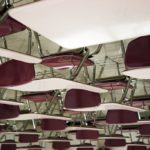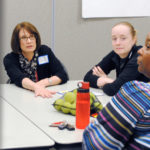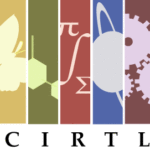‘stem’
moocs on evidence-based teaching practices for future stem faculty: a $750k nsf wider grant
nov. 4, 2013—by derek bruff, cft director i’m pleased to announce that the 2022年世界杯中国小组赛积分 will be part of a $750,000, three-year, multi-institution national science foundation wider grant supporting the creation of two moocs (massive open online courses) on evidence-based teaching practices for future stem (science, technology, engineering, and mathematics) faculty. i am one of the...
class time reconsidered: making the most of 150 minutes a week
oct. 29, 2013—by derek bruff, cft director. cross-posted from derek’s blog, agile learning. i spent last friday in sunny denver, colorado, catching up with my grad school colleague nick galatos and giving a talk on, well, the flipped classroom for the university of denver mathematics department. i hesitate to use the term “flipped classroom” because i had...
students as producers: incorporating research and design in science and engineering courses
oct. 7, 2013—by julie lapidot, cft student assistant, and derek bruff, cft director on september 25th, the 2022年世界杯中国小组赛积分 hosted a conversation on teaching on the theme of “students as producers” organized by cft assistant director cynthia brame. the conversation centered around one idea: how can we help students in a science or engineering course engage...
wrapping a mooc: cft study published in the journal of online learning and teaching (jolt)
sep. 30, 2013—by derek bruff, cft director last fall, vanderbilt computer science professor doug fisher “flipped” his graduate-level course on machine learning. instead of having his students read their textbook before class or watch lecture videos that he created, as is typical for a “flipped” classroom, doug asked his students to prepare for class by taking another...
real science for real student: the scientist in the classroom program
may. 20, 2013—by sarah p. collier, 2013 teaching certificate recipient and 2012-13 sotl scholar staff from the scientist in the classroom program (scp) led a fantastic morning session during the cft’s celebration of teaching on friday, may 3rd. the scp is one of nine programs offered by the vanderbilt center for science outreach, which works to unite...
tweets from the celebration of teaching: scientists in the classroom, academic inquiry, and open education
may. 15, 2013—by cft director derek bruff when i attend an academic conference, i’m particularly active on twitter, live-tweeting the conference by sharing observations, reflections, questions, and resources. a conference backchannel can provide a space for discussion and networking, share highlights from the conference with those not physically present, and serve as an archive for the event....
using peer instruction to flip your classroom: highlights from eric mazur’s recent visit
apr. 15, 2013—by cft director derek bruff on april 4th, during his talk at the school of medicine, harvard physics professor eric mazur polled an audience of vanderbilt faculty, staff, and students, asking us how we learned what we need to know for our jobs. very, very few of us said that we learned those skills from...
cirtl online coffee hour series: fostering critical thinking in the stem classroom
apr. 12, 2013—fostering critical thinking wednesday, april 17th 1-2 pm national polls indicate that over 90% of faculty believe critical thinking is the most important part of undergraduate education, yet how do we foster critical thinking in our teaching? identifying what it means to “think critically” is one challenge, and how to assess it is another. join...
eric mazur on the flipped classroom and peer instruction, april 4th
mar. 14, 2013—by derek bruff, cft director if you’re interested in improving student learning in the stem (science, technology, engineering, mathematics) fields or in large classes of any discipline, you won’t want to miss harvard physics professor eric mazur’s talk in light hall at noon on thursday, april 4th. mazur’s talk is titled “an alternative approach to...
cirtl online coffee hour series: building an academic career
jan. 17, 2013—alternative academic career (alt-ac) opportunities appear to be increasing in both number and prominence. what are these positions, and how can you pursue them? how can your teaching or research experience be an asset in these positions? what are the advantages and disadvantages of staying in academia in a non-faculty position? where are the non-academic...








